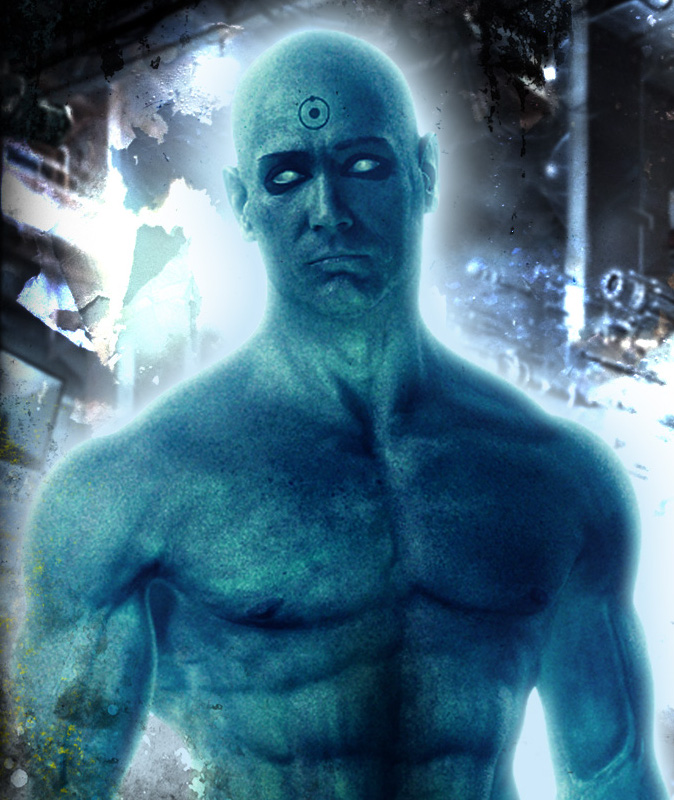Kardashev II civilizations have the power capabilities
of an entire star. One way to do this would be to capture the star's energy with a
Dyson sphere (below).

Futurists and science fiction types (myself included) often over-simplistically extrapolate current, very strange trends (in terms of the rest of history and nature), especially exponential ones. Despite that, people are looking for
Dyson spheres for real as part of SETI. I think this program carries so many assumptions that it's doomed; but let's have some fun and say Dyson spheres are for galactic wusses that don't have the stones to just generate the power themselves. If we humans are eventually going to produce enough power to match our own star, how close are we? Is this something that should be discussed during the next election cycle?
Take a guess. Here are the numbers: the current energy output of humans is about 5x10^20 J per year (since this is
energy over time, we're really talking about power). The Sun's output is 1.2x10^34 J per year. So how close are we? A factor of 24 trillion, that's how close.
![]()
Let's assume, even more stupidly, that our energy curve will continue to rise the way it has in the twentieth century (see above), despite the fact that the vast amount of that area under the energy-time curve (again, power) came from spending stored chemical potential energy in fossil fuels. The curve has gone up 1x10^14 J about every 15 years - arithmetically, not geometrically. At this rate of increase, the sun will have burned out long before we ever match it. (If you want to be a smartass, you could say that this means that we
will eventually match the sun's power because the sun's output will drop drastically. But even then the constraint which determines this is the sun, not how fast our energy output grows.)
Another way of looking at it: if you wanted to match the sun's power by burning fossil fuels, then using the energy density of oil, you would have to burn an amount of oil equal to the mass of the Earth, 50 times per second.
What is this, XKCD?
You're saying, "Fossil fuels? Of course you idiot, you can't get to the Kardashev big leagues powering your civilization on combustion engines!" Fine, let's make an Earth out of antimatter, and gradually crash pieces of it into this Earth. You could put out as much as the sun for about a hundred million years, by shooting pieces of the anti-Earth at us at a rate of a million tons per second. (I guess you hold the Earth together with duct tape to keep it from flying apart during all these shenanigans.) Assuming you don't start with the part of the Earth where you're sitting it would probably look cool, but even so I bet you'll quickly be getting some neat-o cancers from all the high-energy photons this produces, and maybe even just diffuse axonal injury knocking you unconscious in minutes. Incidentally my suggestion is to start with Belgium.
Above: Belgium, at left.
There will still be people objecting, i.e. the Ray Kurzweils of the world, that problem-solving abilities (AI) will grow exponentially, and therefore the energy-producing capacity will follow. Fine. The question for them is what is going to
power these other exponential trends, at much more mundane time horizons? (Like the singularity that's apparently scheduled for seven decades from now.) If the answer is "AIs will have god-like intelligence and they'll be able to do it and we can't understand", then why shouldn't we also believe doomsday prophets like Harold Camping who say their gods are coming, and make their claim with
exactly the same amount of verifiability and comprehendibility? If you think Kurzweil makes sense, you should also read about the economist
Julian Simon's commodities bets, because you should agree with him - although I find that singulatarians somehow find reasons to dislike over-optimistic economists, probably mostly just out of mood afiliation and status considerations.
Final answer: we are not going to become a Kardashev II civilization any time soon, and no one really knows how to get there or what this means, because the definition necessarily involves processes we don't understand. But I'm still fine with dropping large amounts of antimatter on Belgium.
ADDENDUM: This is from Wikipedia about the sun's power generation and for some reason I find this shocking.
The power production by fusion in the core varies with distance from the solar center. At the center of the Sun, theoretical models estimate it to be approximately 276.5 watts/m3,[54] a power production density that more nearly approximates reptile metabolism than a thermonuclear bomb.[b] Peak power production in the Sun has been compared to the volumetric heats generated in an active compost heap. The tremendous power output of the Sun is not due to its high power per volume, but instead due to its large size.
Putting it in socioeconomic terms, the sun is like China - the per capita income is actually not impressive but it's huge, so the multiplier is big.



